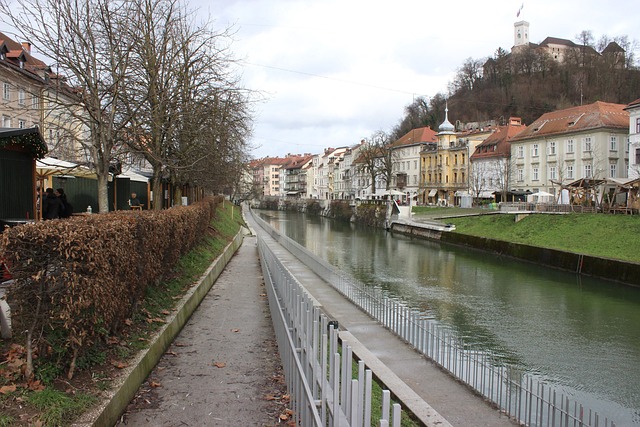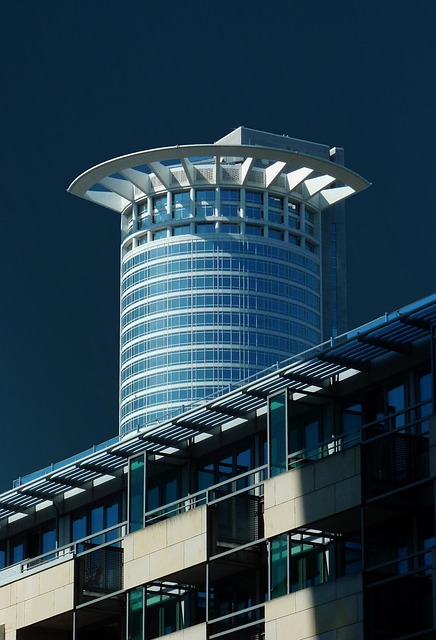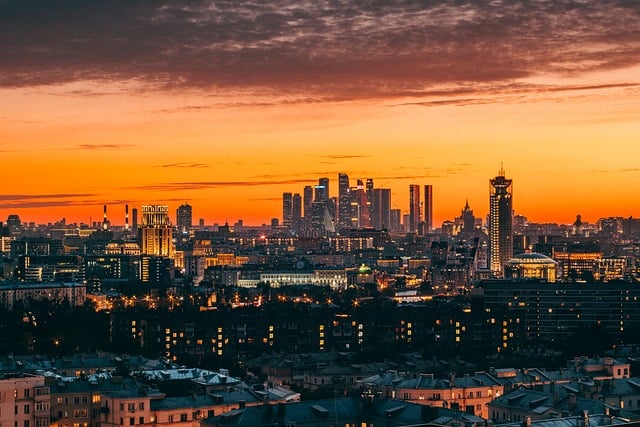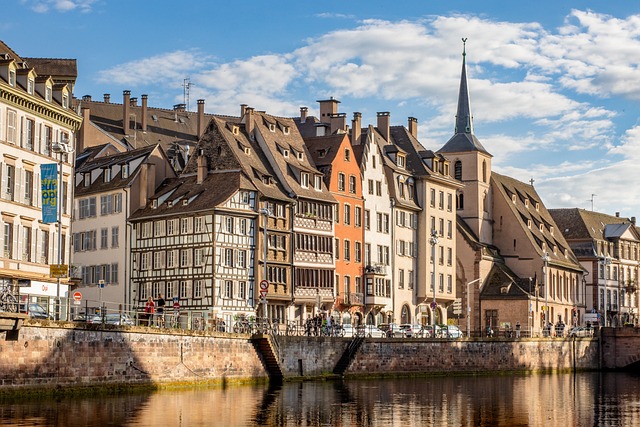In Karachi's Muslimabad Society, supermarkets have transformed local retail, offering convenient access to diverse products and becoming community hubs. To thrive, these stores must balance urban demands with cultural diversity, focusing on halal foods, locally sourced items, and catering to specific dietary needs. While they foster community connection, the rise of supermarkets has impacted traditional local businesses, necessitating collaboration to preserve the society's unique character. With Karachi's growing population and consumer preferences shifting, supermarkets are poised for success, but must adapt through unique offerings and efficient urban delivery.
In Karachi’s vibrant Muslimabad Society, supermarkets have emerged as a game-changer, transforming the local retail landscape. This article explores the rise of these modern shopping hubs, delving into their unique offerings and impact on the community. From understanding market dynamics to analyzing their effect on local businesses, we provide insights into the current scene. Furthermore, we anticipate future prospects and challenges, shedding light on Karachi’s evolving supermarket scene.
- The Rise of Supermarkets in Karachi's Muslimabad Society
- Understanding the Market Needs and Demands
- Unique Features and Services Offered by These Supermarkets
- Impact on Local Businesses and Community Dynamics
- Future Prospects and Challenges for Supermarket Growth in Muslimabad
The Rise of Supermarkets in Karachi's Muslimabad Society

In recent years, Karachi’s Muslimabad Society has witnessed a significant shift in its retail landscape with the rise of supermarkets. These modern retail outlets have become an integral part of daily life for many residents, offering a wide array of products under one roof. The introduction of supermarkets in this traditionally bustling area has not only met the evolving needs of the local community but also brought about convenience and diverse choices.
Karachi, known for its vibrant and fast-paced urban environment, has embraced the supermarket trend with open arms. Muslimabad Society, with its mix of residential and commercial spaces, has seen these stores become popular gathering spots, catering to a wide demographic. The availability of international brands, fresh produce, and everyday essentials at competitive prices has made supermarkets a preferred choice for families seeking convenience without compromising on quality.
Understanding the Market Needs and Demands

In the vibrant city of Karachi, understanding the market needs and demands is a delicate balance between catering to diverse cultural preferences and satisfying a bustling urban population. Muslimabad Society, a vibrant neighborhood within the metropolis, presents unique challenges and opportunities for supermarkets aiming to serve this socio-demographic. Here, a nuanced approach is required to meet the varied requirements of residents, ensuring a shopping experience that resonates with both traditional values and modern conveniences.
Supermarkets in Karachi, particularly those targeting Muslimabad Society, must consider the cultural nuances and religious observances that influence consumer behavior. This includes offering a wide array of halal and locally sourced products, catering to specific dietary restrictions, and ensuring the availability of items relevant to daily rituals and celebrations. By understanding these demands, supermarkets can create a sense of community and trust among their customers, fostering loyalty in this competitive market.
Unique Features and Services Offered by These Supermarkets

In the vibrant city of Karachi, Muslimabad Society has witnessed a rise in the popularity of supermarkets that cater to diverse communities, including Muslims following Halal dietary guidelines. These establishments offer more than just groceries; they are unique in their feature sets and services. Many provide dedicated sections for halal meats, fresh produce, and packaged goods certified by Islamic authorities, ensuring customers can make choices aligned with their faith.
Some supermarkets also host specialized departments for festive occasions, offering a wide array of Halal options for Eid and other significant Muslim holidays. They may feature local and international food brands, along with in-house bakeries crafting traditional halal pastries and sweets. These markets are not just about shopping; they foster a sense of community, providing spaces where residents can gather, socialize, and access services tailored to their specific needs within the bustling metropolis of Karachi.
Impact on Local Businesses and Community Dynamics

The arrival of supermarkets in Karachi, particularly within Muslimabad Society, has brought about a significant shift in local business dynamics. Traditional grocery stores and markets, which were once the primary sources of goods for residents, now face increased competition from these modern retail giants. While supermarkets offer convenience and a broader range of products, they have led to a decline in foot traffic for nearby local shops, impacting their revenue and sustainability. Many small businesses are struggling to adapt, emphasizing the need for strategies to support local enterprises in the face of such substantial competition.
Community dynamics in Muslimabad Society have also changed as a result of this transformation. The neighborhood’s social fabric, once centered around local stores and markets, is now influenced by the convenience and attractive pricing of supermarkets. This shift may lead to a loss of personal connections between shopkeepers and customers, which were hallmarks of the area’s vibrant community. Encouraging collaboration among local businesses and fostering a sense of community can help mitigate these impacts, ensuring that the society retains its unique character while embracing modern retail options.
Future Prospects and Challenges for Supermarket Growth in Muslimabad

The future prospects for supermarkets in Muslimabad, Karachi, look promising due to the city’s growing population and changing consumer preferences. With an increasing middle class, there is a rising demand for convenient, one-stop shopping experiences, which supermarket formats are well-placed to offer. Additionally, Karachi’s vibrant economy and expanding retail sector provide a conducive environment for growth. However, challenges remain, particularly in terms of competition from established hypermarkets and the need to adapt to diverse consumer needs within a diverse cultural context.
Supermarkets in Muslimabad must navigate competitive landscapes and differentiate themselves by offering unique value propositions. This could involve catering to niche dietary requirements prevalent in the area, such as halal or organic options, ensuring wide product ranges appealing to different age groups, and integrating modern technologies for enhanced customer experiences. Overcoming logistical challenges, such as efficient last-mile delivery, particularly in dense urban areas, will also be crucial for sustainable growth in the face of rapidly evolving consumer expectations in the digital age.
The rise of supermarkets in Karachi’s Muslimabad Society has significantly reshaped the local retail landscape. By understanding the unique market dynamics, these supermarkets have introduced innovative features and services tailored to the community’s needs. While they pose challenges to traditional local businesses, they also foster economic growth and enhance community dynamics. As the future unfolds, addressing ongoing challenges and capitalizing on emerging opportunities will be crucial for sustained supermarket growth in Muslimabad, solidifying their role within the vibrant city of Karachi.
